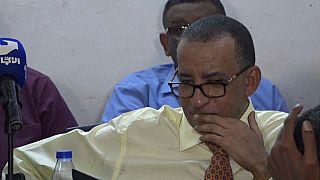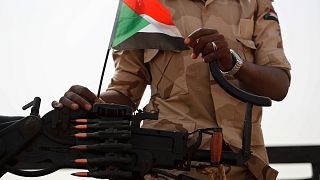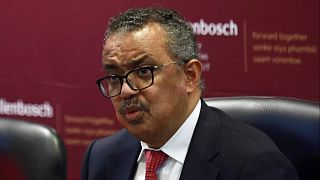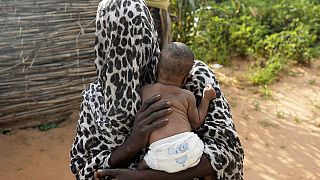Sudan
Animal markets in Sudan's capital Khartoum are teeming with livestock, just days before Muslims mark Eid al Adha or the feast of sacrifice.
But the celebration comes at a time many in the country are struggling to make ends meet and there are not many buyers.
"The market was stagnant, but the demand and mobility [have] increased a little a few days before Eid. The prices were more reasonable last year, but the increase in prices of feed, fuel prices and transport costs, and the scarcity of animals drove the prices up this year," said Abdulmunim Nur, a cattle breeder.
A rapid acceleration in prices since February means many families are priced out of buying sheep. Sudan's economy has been characterized by high inflation and currency shortages for years.
"Sacrifice is a part of our faith and we are very willing to fulfill it. Prices are shaped according to political and economic developments in Sudan and the world. In the days leading up to Eid, sacrifice purchases are very weak. Prices are high, but there are also opportunities for citizens to buy sacrifices in installments or in other ways," said Walid Ali, who had come to look for animals in Khartoum.
Sudan, which is considered one of the central countries of animal husbandry in Africa, has more than 100 million livestock. It exports animals to many countries, especially Saudi Arabia.











01:10
Muslim pilgrims circle Mecca's Kaaba as Hajj ends
01:10
Desperate Palestinians queue for food at soup kitchen during Eid al-Adha
02:09
In a bid to aid its economy, Lebanon hopes to return to golden age of tourism
01:17
Kenyan Muslims pray for Gaza as they celebrate Eid Al-Adha
Go to video
Sheep markets struggle in Niger ahead of Eid al-Adha amid insecurity and economic strain
01:09
Egypt: Inflation forecast to have climbed further in May